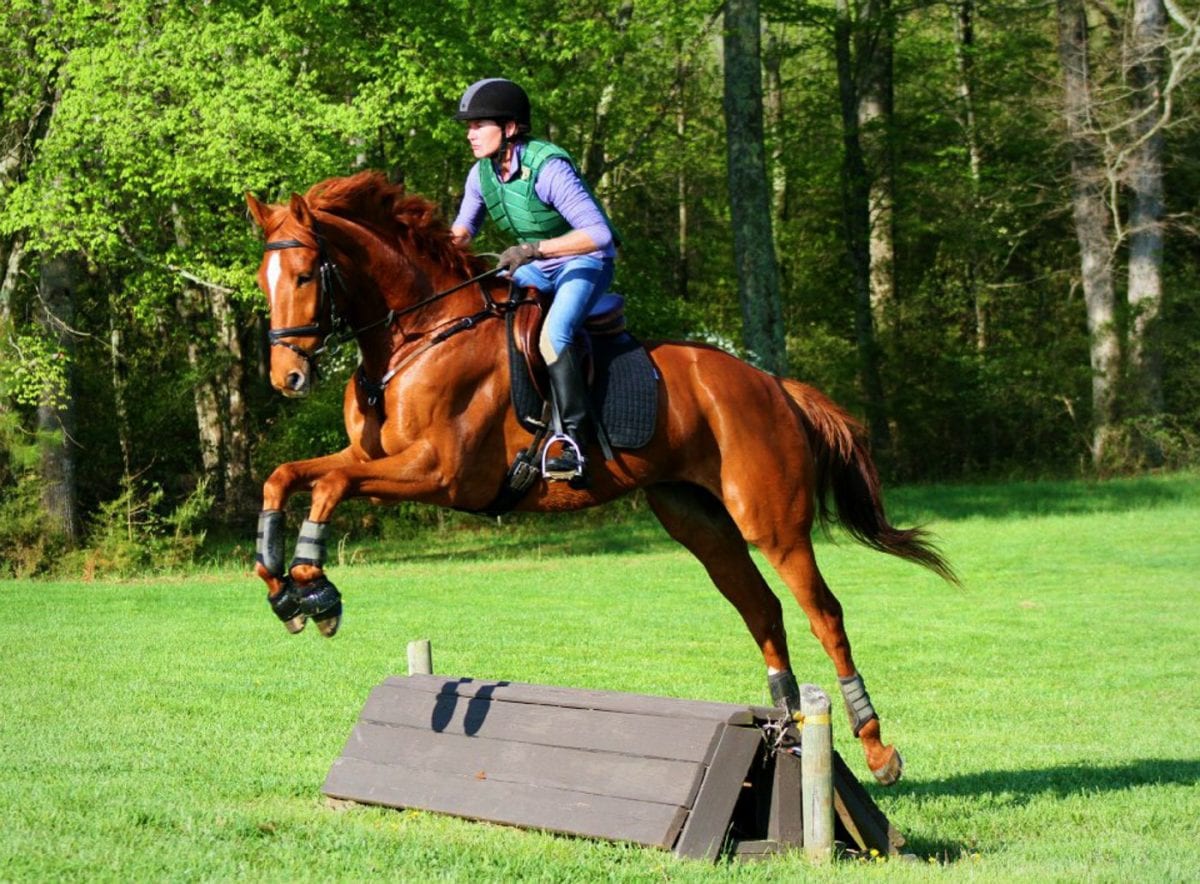by Teresa Genaro
On December 11, the Thoroughbred Aftercare Alliance announced its first significant round of accreditations, giving its stamp of approval to 20 organizations across the country. Among them were four Mid-Atlantic facilities: Angel Acres Horse Haven in Pennsylvania, Virginia’s ReRun, and MidAtlantic Horse Rescue and Thoroughbred Placement Resources, both in Maryland.
Though applicants characterized the process as painstaking –requiring a detailed application and multiple site visits — they nonetheless appreciate the thoroughness of the TAA. They’re grateful for the money, of course, but beyond that, they value the TAA’s “stamp of approval” as a mark of legitimacy.
“We applied for accreditation because there are too many organizations parading as rescues that aren’t,” said Jo Deibel, founder and executive director of Angel Acres in Glenville, Pennsylvania. “We try to be good stewards of the public’s money and to take good care of horses, and we want people to know that we’re doing a really good job.”
Already accredited by Global Federation of Animal Sanctuaries, Angel Acres was, said Deibel, unaware of the possibility of grant money from the TAA when she applied.
[pullquote]“We applied for accreditation because there are too many organizations parading as rescues that aren’t. We try to be good stewards of the public’s money and to take good care of horses, and we want people to know that we’re doing a really good job.” — Jo Deibel of Angel Acres[/pullquote]
Approximately 20 horses live on the farm, and Angel Acres supports others through Mattie’s Legacy Fund, which offers economic assistance to horse owners in financial distress.
Deibel intends to use her grant money on hay, a “decent trailer,” and a riding area at the main farm in order to better evaluate the horses that Angel Acres takes in.
“The quicker we can school them,” she said, “the quicker we can help the horses.”
Beverly Strauss, co-founder and president of MidAtlantic Horse Rescue in Chesapeake City, Maryland, said that her organization will use the grant money to renovate and expand one of its barns.
“It’s got seven stalls, 10 feet by 11 feet each, and it’s not very well insulated or ventilated. You can’t put horses in there and go away and feel safe,” she said. “It’s got no running water. We had already allocated some capital towards renovating it, but the grant will allow us to get going on the work.”
“I’ve already called the contractor,” she added with a laugh. She expects the total cost of the work to come to $75,000, and when it’s finished, the barn will have additional, bigger stalls. Strauss also hopes to buy a standby generator so that when the power goes out, the farm will have a water supply.
ReRun’s Lisa Molloy, the organization’s program director, echoed Angel Acres’ Deibel. “Accreditation gives us a sense of legitimacy, especially with so many placement organizations and small charities popping up everywhere,” she said. “It proves that we’ve been totally checked out, and it gives our adopters a better sense of wellbeing because we’ve been investigated, checked, and inspected.”
Located in Suffolk, Virginia, ReRun also retrains horses sent to them by Turning for Home, Exceller, and Akindale Horse Rescue. Molloy will use the grant money to take on more horses that require rehabilitation before being adopted.
“Everyone wants young, sound horses that have minimal racing starts,” said Molloy. “We always find homes for them.
“Rehab horses are more financially draining; instead of giving a horse stall rest for four months, we might be able to offer stem cell therapy, which would cut down rehab time.”
[boxify cols_use =”4″ cols =”4″ position =”none” order =”none” box_spacing =”5″ padding =”3″ border_width =”1″ border_color =”blue” border_style =”solid” height =”60″ ][/boxify]
She’d also like to be able to devote resources to rescuing horses from auction kill pens. She was recently made aware of a former racehorse at an auction; the rescue cost $650, and she expected to spend another $500 to get the horse through quarantine, and that doesn’t count additional veterinary and other expenses.
“Typically,” she said, “we put in about $3,500, but people really like those horses—everybody wants to be the person that saved a horse.”
“We’re very excited,” say MidAtlantic Horse Rescue’s Strauss, “that our industry is really focusing on this for our horses’ sake.”
“When John Hettinger was alive,” she went on, referring to the long-time owner/breeder based at New York’s Akindale Farm, “this was his focus. He couldn’t get the industry behind it, so he started Blue Horse Charities,” an organization founded in 2001 to take care of horses when they couldn’t race anymore. Hettinger died in 2008.
“I wish,” she said, “that he were here to see this.”
(Featured photo, of Rock N’ Bid, a horse retrained at Thoroughbred Placement Resources, by Katherine Turnbull.)








Congratulations to all the grant recipients, they are all very deserving!